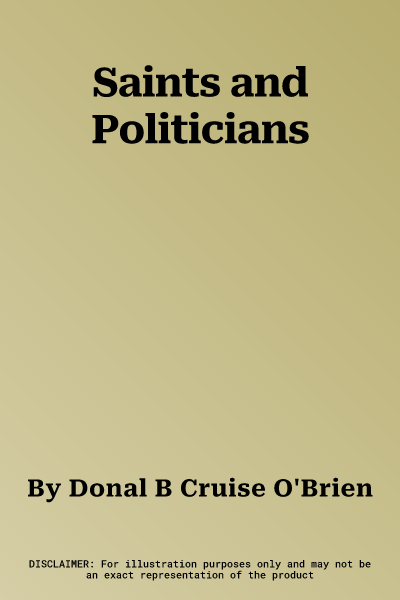Donal B Cruise O'Brien
(Author)Saints and PoliticiansHardcover, 28 February 1975

Temporarily out of stock
Free Delivery
Cash on Delivery
15 Days
Free Returns
Secure Checkout

Part of Series
African Studies
Part of Series
Cambridge Monographs on Mathematical Physics
Part of Series
African Studies (Hardcover)
Print Length
221 pages
Language
English
Publisher
Cambridge University Press
Date Published
28 Feb 1975
ISBN-10
0521205727
ISBN-13
9780521205726
Description
Product Details
Author:
Book Format:
Hardcover
Date Published:
28 February 1975
ISBN-10:
0521205727
ISBN-13:
9780521205726
Language:
English
Location:
Cambridge
Pages:
221
Publisher: